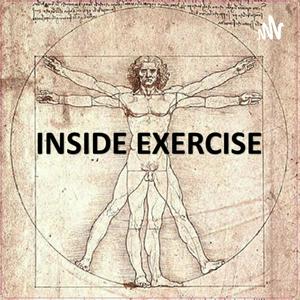#90 - Former WR marathoner Derek Clayton with the top researchers who've studied him over 50 years
Dr Glenn McConell chats with legendary Australian former marathon world record holder and lifelong exerciser Derek Clayton and the three top researchers who have tested him over 50 years. Derek, who is now 82 years old, broke the marathon world record in 1967 running 2:09:36 when the previous record was 2:12:11(!). Then in 1969 he ran 2:08:33 a world record which wasn’t broken until 1981. He then continued to train at a high level, especially cycling. He was VO2 max tested in 1969 by Professor David Costill, 1991 by Professor Costill, Professor Mark Hargreaves and myself then in 2022 by sports cardiologist Dr Andre La Gerche and Prof Hargreaves. Each of these research experts have previously individually been on the podcast and join us today. Derek has developed atrial fibrillation but has an amazing heart with substantial cardiac reserve. Very interesting and inspiring. Enjoy!0:00. Introduction2:40. Intro to Derek. His marathon WRs6:07. England/Northern Island7:50. Always driven, didn’t want any regrets9:15. First signs of running talent at 19. Belfast12:50. Arrival in Melbourne, Australia15:32. Intro to the marathon18:10. Only wanted to win, no interest in pacing etc19:30. His parents/talent etc. No coach.23:35. Huge training mileage26:00. Worked full-time26:40. Accidental high CHO diet/only water during races27:44. Trained very hard, no taper 28:50. Running injuries: knee replacement30:48. Prof David Costill joins in32:10. How David hooked up with Derek36:58. His 1969 testing41:00. Prof Mark Hargreaves joins in42:20. His 1991 testing46:30. Similar VO2 max 1969 vs 199147:35. His slow vs fast twitch fibre content49:20. Competitive about hand grip!50:20. Not overly high VO2 max52:20. Very efficient55:30. Resilient, mental toughness, work ethic57:50. Very modest58:50. Serious bike racing1:01:05. His Olympic marathon races1:03:00. Issues at Olympics: altitude and heat1:05:10. Dr Andre La Gerche joins in1.09:03. His heart is enormous1:11:20. Endurance training: right vs left ventricle1:12:25. Has very large atria but reduced function1:16:20. Right ventricle and endurance ex1:18:30. His atrial fibrillation and ex1:25:52. Ablations to try to prevent his AF1:30:50. Alcohol, AF and ablations1:32:20. He's had 3 ablations but still has AF1:34:20. The heart can take time to recover from hard ex1:37:20. Right ventricle, exercise and drops in arterial oxygen1:40:55. He has enormous cardiac reverse1:46:35. Lifelong ex increases AF1:51:50. Ex extremely important despite increasing AF1:55:20. Prioritize/best treatment exercise1:59:12. OutroInside Exercise brings to you the who's who of research in exercise metabolism, exercise physiology and exercise’s effects on health. With scientific rigor, these researchers discuss popular exercise topics while providing practical strategies for all.The interviewer, Emeritus Professor Glenn McConell, has an international research profile following 30 years of Exercise Metabolism research experience while at The University of Melbourne, Ball State University, Monash University, the University of Copenhagen and Victoria University.He has published over 120 peer reviewed journal articles and recently edited an Exercise Metabolism eBook written by world experts on 17 different topics (https://link.springer.com/book/10.1007/978-3-030-94305-9).Connect with Inside Exercise and Glenn McConell at:Twitter: @Inside_exercise and @GlennMcConell1Instagram: insideexerciseFacebook: Glenn McConellLinkedIn: Glenn McConell https://www.linkedin.com/in/glenn-mcconell-83475460ResearchGate: Glenn McConellEmail:
[email protected] to Inside exercise:Spotify: shorturl.at/tyGHLApple Podcasts: shorturl.at/oFQRUYouTube: https://www.youtube.com/@insideexerciseAnchor: https://anchor.fm/insideexerciseGoogle Podcasts: shorturl.at/bfhHIAnchor: https://anchor.fm/insideexercisePodcast Addict: https://podcastaddict.com/podcast/4025218Not medical advice


